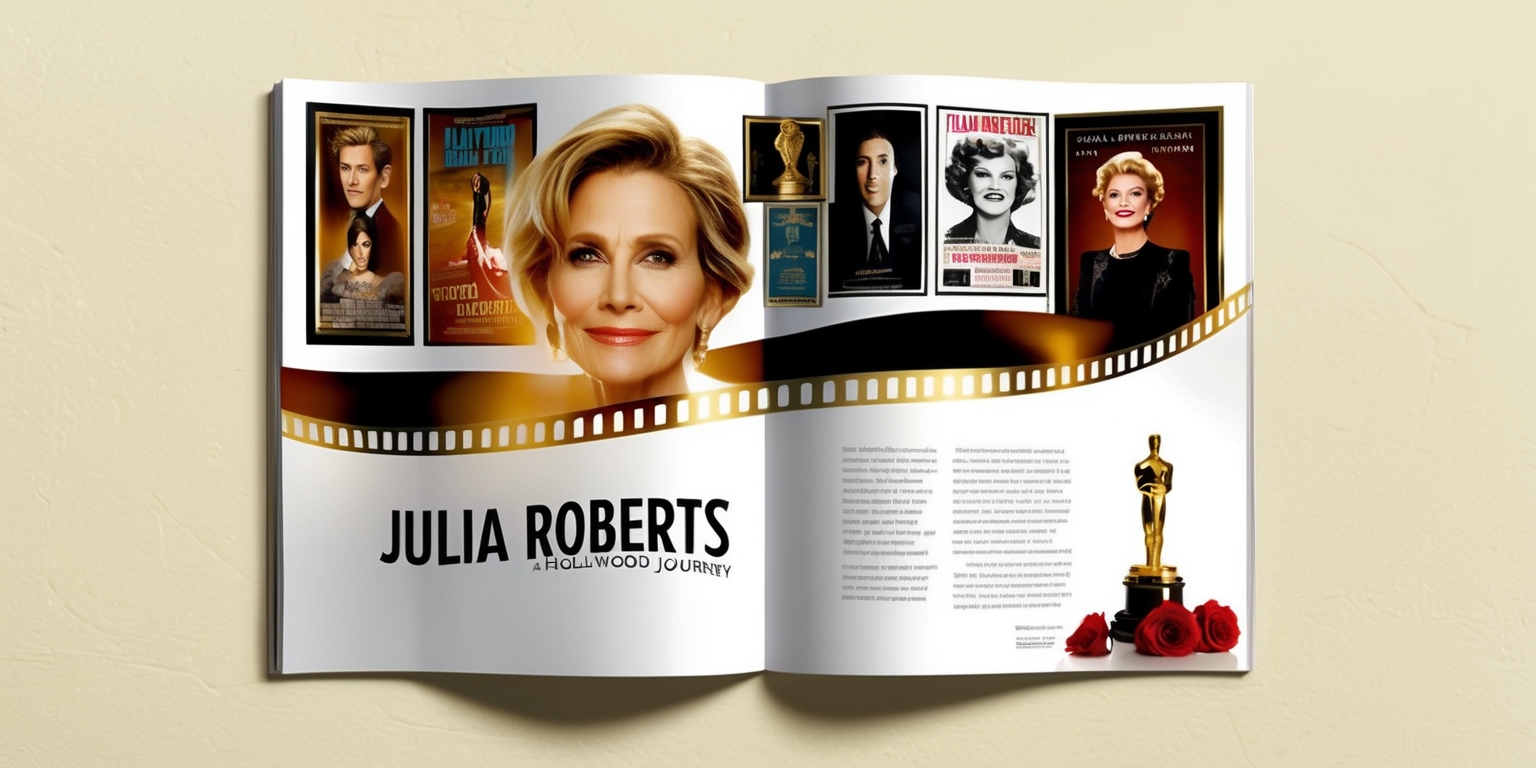
Julia Roberts, a name that resonates deeply within Hollywood, has long been celebrated for her incredible talent and timeless beauty. Rising to stardom in during the late 1980s and the early 1990s, she won the affection of countless fans with her iconic performance in "Pretty Woman" opposite Richard Gere. Over the years, Roberts has become the epitome of a leading lady in Tinseltown, often finding herself at the nexus of significant cinematic moments and pivotal collaborations. However, her journey through the tricky landscape of Hollywood was marked with a critical decision that arguably spared her from the infamous predatory behavior of Harvey Weinstein—a decision that cost her a chance to star in an Oscar-winning film. This article delves into the multifaceted aspects of Julia Roberts’ career, her experiences in Hollywood, and the life-altering choice that truly defined her professional path.
Early Days of Superstar
Julia Roberts’ ascent to fame began in an era when the film industry was reinventing itself. After her breakthrough role in "Mystic Pizza," she swiftly established a name for itself as one of the most talented actresses of her generation. This was a time when Hollywood was characterized by glitz and glamour, yet it also harbored darker elements that would eventually come to light.
Fate and Timing in Hollywood
During her rise, Roberts was frequently sought after in a competitive industry teeming with aspiring talents. Her charm and charisma made her an ideal leading lady, capturing the attention of filmmakers and audiences alike. However, not all that glitters is gold in Hollywood, as she would soon discover.
The Weinstein Mirror
Fast forward to 2017 when the revelations surrounding Harvey Weinstein shocked the world. The accounts of numerous actresses who faced harassment and assault revealed a sinister undercurrent within the industry that had long been ignored. Julia Roberts found herself in a befuddled position, expressing disbelief over the scrutiny and suffering that others had faced. Despite her own bad luck avoiding such encounters, the gravity of the situation weighed heavily on her conscience.
A Window into the Darkness

In a candid conversation, Roberts reflected on the heart-wrenching stories she had heard, particularly as a mother determined to safeguard her child from such realities. While she didn’t want to seem insensitive for having avoided these experiences, she found herself experiencing a deep sadness for her peers who weren’t as fortunate. Her honesty exemplified both vulnerability and strength as she navigated through her surprised detachment from such ugliness.
A Near Miss with Shakespeare in Love
Amid the escalating tensions and revelations surrounding Weinstein, Roberts recalled her missed opportunity with the film "Shakespeare in Love," which would eventually go on to achieve the Oscar for Best Film. Initially interested in portraying the character of Viola, she was inextricably linked to the project during its early stages, unaware of the impending controversies and complications.
Behind the Scenes with Edward Zwick
The film was first conceptualized with Edward Zwick as its director, aligned with Universal Pictures as the production company. Roberts’ ambitions to star in the project sparked her excitement, making her even more invested in its development alongside Zwick. Their collaborative discussions were centered around finding the perfect partner for her character, adding layers to the already complex production landscape.
The Hunt for Her Leading Man
Roberts had her heart set on Daniel Day-Lewis to play her on-screen love interest. Her desire to work with an actor of his caliber was evident. However, reality struck when it was revealed that Day-Lewis was unavailable, thus disappointing Roberts and forcing the team to explore alternative choices.
A Frustrating Casting Process
In the search for Day-Lewis' replacement, Zwick arranged casting calls for several prominent English actors such as Colin Firth and Hugh Grant. Despite their talents, none of the actors quite matched Roberts’ vision of the perfect leading man, leaving the production team in a quandary. This level of disappointment eventually took its toll on Roberts, who was determined to find the right fit.
Quiet Exit and Consequences
As the casting process dragged on without resolution, Roberts' expectation grew dimmer. Ultimately, she decided to step away from the project altogether, leaving her collaborators in the dark. While this decision cost her the chance to star alongside a great ensemble and potentially score an Oscar, it might have saved her from a far more troubling experience that others faced at the hands of Weinstein.
The Silver Lining
Reflecting on her choice to withdraw from "Shakespeare in Love," Roberts has remarked that while it could appear as a disadvantage regarding career opportunities, it was an instrumental decision for her personal safety and well-being. This adds vital context to the often unseen and unspoken decisions that actors must grapple with while navigating their careers.
Julia’s Continued Voyage in Hollywood
Even after losing one of the most iconic roles in film history, Roberts thrived in Hollywood, taking on diverse roles and continuing to win the hearts of audiences globally. Her ability to choose her projects reflects her intuitive understanding of the industry and her desire to elevate narratives that resonate with her personally.
Moving Forward with Care
As the film industry navigates its historical challenges, Julia Roberts remains a voice of hope and resilience. She emphasizes the importance of addressing toxic behaviors while offering support to those affected. Her decision serves as a lesson in self-preservation, highlighting the necessity of putting one’s safety above career prospects.
Empowering Future Generations
With her experience in mind, Roberts champions a more transparent and equitable foundation for future generations in the industry. She advocates for an environment where every actor has the agency to voice their experiences without fear or retribution, fostering a more inclusive Hollywood.
Reflections on Modern Hollywood
The contemporary landscape of Hollywood is shifting as discussions around consent and harassment take center stage. Julia Roberts embodies a significant facet of this discourse, balancing her impressive career with a vocal stance against the systemic issues that have plagued the industry for too long.
Conclusion: The Unwritten Narrative
Ultimately, Julia Roberts’ story is a testament to the complex interplay between artistry and self-protection in Hollywood. While she may have left behind a significant role in "Shakespeare in Love," she gained invaluable wisdom and the ability to navigate an unpredictable industry. Her journey encourages today’s actresses to be vigilant and assertive in their choices, reminding them that their well-being should precede every role they consider.